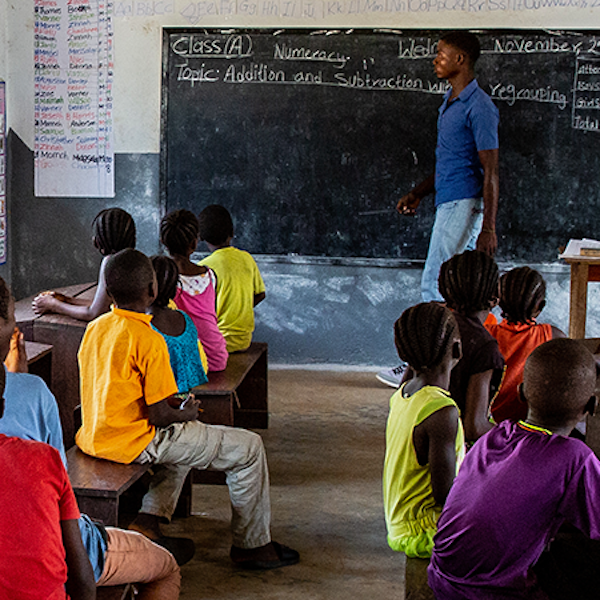Portfolio Insights
Solutions Insights Lab, an initiative of the Solutions Journalism Network, is working with Rippleworks, which supports vital social ventures across many sectors and regions, to conduct in-depth interviews with the leaders of the projects they serve. The insights help illuminate the future of funding for social change, with a focus on centering the needs and voices of those closest to the problem.
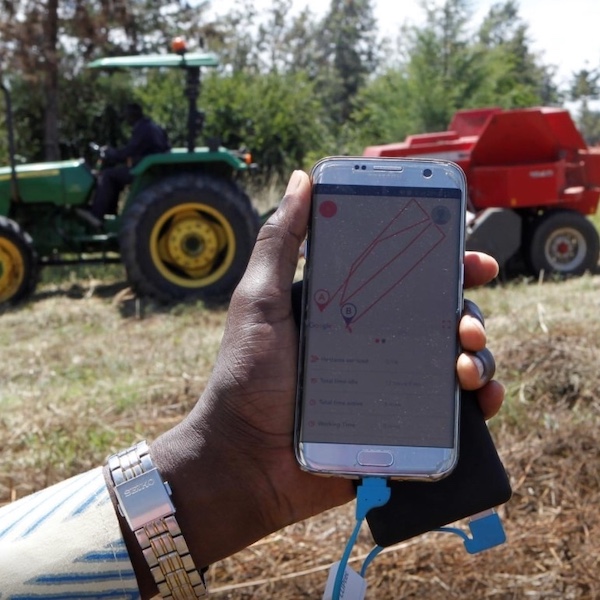
THINK LIKE A VENTURE CAPITALIST
Bold funders take bold risks.
When philanthropic funders take big bets, they can multiply the impact of social ventures exponentially. This is especially true when they invest at early stages, which helps ventures prove the strength of their model and unlock commercial investment.
Maximize innovation
“We’ve seen success with funders who genuinely want to help us innovate and try new things but also understand the need for flexibility,” said Natasha Wheatley, Impact Hub Director at Solar Sister. “When you’re innovating, you have to make adjustments, and having funders who are willing to adapt makes a huge difference.”
Adapt together
Alesha Miller, chief strategy officer at Digital Green, appreciates a “willingness to weather change together” by funders who remained curious and committed rather than turning away when their AI-based project proposals needed adjustment because of rapidly changing technology. That mindset from a funder is the gold standard in the eyes of Lauren Cameron of the non-profit Recidiviz. “We’re pivoting all the time, and being able to go along on that ride with us and get excited about these changes and being a bit more risk averse in a way that resembles more venture funding is beneficial,” she said.
YOUR APPROACH MATTERS
Build systems of dignity.
Systems of dignity are long-term connections between grantees and funders built on respect, agency, and trust. Funders listen deeply to grantees’ needs and respect their firsthand knowledge of problems as they exist locally. They treat organizations as equals by making sure they are heard and granting them the agency to make decisions.
Start with respect
“Every interaction we had with everyone at Rippleworks has been one of complete respect and dignity,” said Manu Chopra, CEO and co-founder of Karya. “That stands out in an ecosystem that often does not have that, in all honesty.”
Two-way feedback
One facet of this is “horizontal dialogue,” where grantees can provide feedback to funders or even let them know if the assistance a funder offers isn’t the type a grantee most needs in the moment. Nivi Sharma, CEO at Bridges of Prosperity, said they knew Rippleworks respected their organization when the foundation allowed them to flip the usual hierarchy. They were able to share what they expected out of a funder as part of a conversation about Bridges of Prosperity’s values. When a funder acts like that, “you see intentionality coming through, you see a genuine interest in supporting, you see action that’s then translating that intention to reality,” said Piyush Tewari, the founder and CEO of the SaveLIFE Foundation. “All of that comes together as a very potent effort to propel an organization forward.”

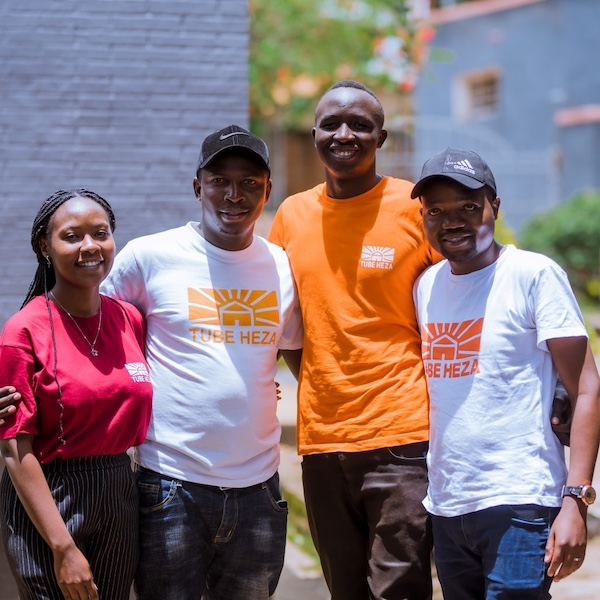
SLOW AND STEADY
Capacity building takes time.
Ventures need a partner that is willing to go on a journey, because building capacity around skills like management and leadership doesn’t happen via quick workshops or two-week classes.
Ongoing coaching
“The way to get really good at work is almost never going to be through a training, unless it’s a technical skill, like trying to learn Excel. Then you can just go on YouTube for that,” said Gayatri Datar, co-founder of EarthEnable. “If it’s a management skill, that has to involve more ongoing and more consistent coaching.”
Well-designed trainings
Yamba Malawi’s interim executive director Maxwell Kaliati knows hyperlocal organizations that need help with financial management and governance issues, but funders need to recognize that staff acumen in those essential areas can’t be built overnight. Giving the example of Rippleworks’ Leaders Studio, Lena Zamchiya of Friendship Bench said she’s seen a well-designed and committed training program have a palpable impact on her colleague’s motivation and leadership potential.
Meet the schedule of grantees
When funders do provide capacity-building support, they must be willing to adjust to meet the schedule of grantees instead of the other way around. “Sometimes I’ve participated in capacity-building sessions and wished I could do the same session two months later when I’m not working 16-hour days on some emergency that’s come up,” said Swapna Reddy, co-founder and co-executive director of Asylum Seeker Advocacy Project.
GET GROUNDED
Doers can move into leadership, and the best doers come from the community.
Communities most impacted by problems should be actively involved in carrying out the solutions. They are best situated to build longevity and sustainability into the solutions. Without their buy-in and participation, solutions may not last beyond the initial wave of support.
Hire people who understand the problem
“Hire in a way that’s reflective of markets you want to serve, and not just in a superficial tick-the-box way,” said Jehiel Oliver, CEO of Hello Tractor. “Truly embrace the opinions of people who understand the problem.”
Local practitioners build trust
Integrate Health’s model for primary care depends on community health workers who are recruited and recognized by the communities themselves, paving the way for those health workers to act as trusted sources of medical treatment and information for residents. Similarly, Building Tomorrow created a squad of 15,000 education volunteers from throughout Uganda to improve literacy in their own communities. “These are all local proximate volunteers who’ve raised their hand and said, hey, we want to take part and we want to be involved in this work,” said George Srour, co-founder and Chief Dreamer.
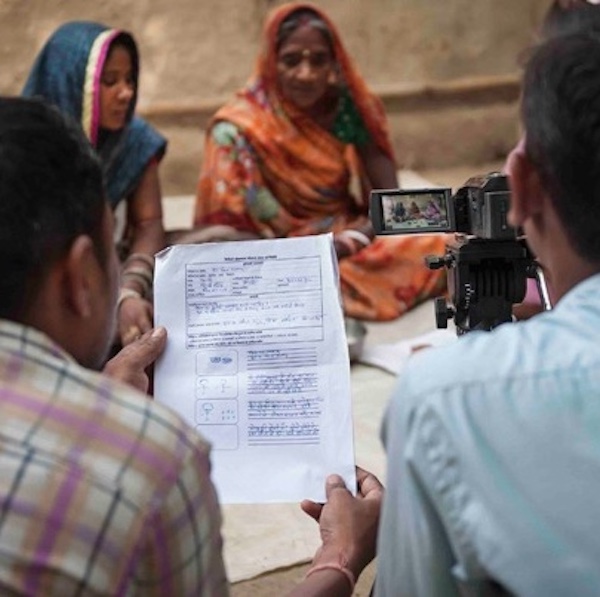

SAY NO TO TRANSACTIONAL RELATIONSHIPS
Philanthropy should be a strategic partnership.
Funders who act as advisors and co-collaborators, offering strategic guidance without an agenda or control, are highly valued by grantees. Effective funders take the time to get to know grantees and understand their operational goals. They engage in deep dialogue to create customized packages of support aimed at unlocking an organization’s ability to scale their impact, giving grantees a partner on the path to sustainability and scale.
Co-create the strategy
“One thing I like about Rippleworks is that they co-create with you,” said Fidèle Rutayisire, founder and executive director of the Rwanda Men’s Resource Center (RWAMREC). “They don’t dictate what they want. They ask you what you want and need, and then we co-create together and co-design strategies.”
Find solutions together
Rob Johnson, CEO of Acceso, prefers when funders approach the work as a partner in finding solutions and overcoming obstacles—getting into the game like an investor would rather than as an “outside” funder. To Tarun Cherukuri, founder of Indus Action, a funder played a catalytic role in their organization’s growth by pairing a managing director with executive staff to develop their board, governance structure, and ethos. That funder was “very hands-on in terms of the organizational development journey,” said Cherukuri.
CONNECTING EXPERTS
Find the pink unicorn with purple dots.
Grantees heap praise on foundations that connect them with outside experts who can help staff think about both obstacles and solutions, a meet-up that Rippleworks facilitates through its Expert Office Hours program. And they say the best expert is the one who has very specific experience related to their challenges, the sector they work in, or even the local area where they operate.
Listen for what expertise is needed
“I met with Rippleworks and I was describing the expert that I want, and I was thinking, I don’t know that that person exists. It’s a pink unicorn with purple dots—and they delivered a pink unicorn with purple dots,” said Grace Matlhape, CEO of SmartStart.
Prioritize context for the best fit
In the past, funders have connected Ko Chijota of GGEM Farming to experts in Silicon Valley, but even more helpful would be connections or mentoring sessions with experts in Malawi (where GGEM Farming works) or Africa in general to talk shop on struggles with local red tape. For Richa Gupta, CEO and co-founder of the Labhya Foundation, experts who intimately know India’s labor laws and HR practices adapted to Indian culture would build on the helpful advice that American experts provided to her through Rippleworks’ programming support.
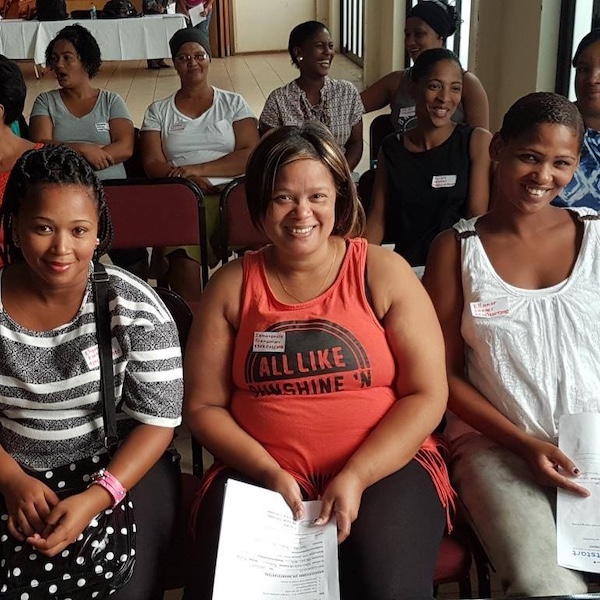
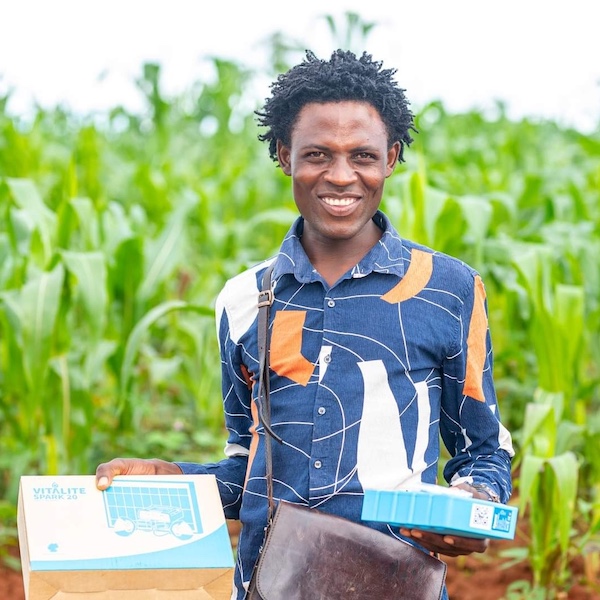
GETTING TO SUSTAINABILITY
Impact-based funding can give for-profits the boost they need to take flight or diversify their impact.
Grants are critical for innovation and strategy, but they should also be seen as a ladder to help for-profit social enterprises reach a sustainable model based on revenue. Results-based financing that funds outcomes that have impact, and not just a series of benchmarks along the way, is one way grant funds can help organizations plan beyond short funding cycles.
Give space to breathe
Unrestricted grants give for-profits space to breathe and reimagine, said Aniket Doegar, Founder and CEO of Haqdarshak. “Once you’ve cracked that, the business model should take over in a for-profit, because if you are subsidizing a business model, then there is a flaw in the model itself,” he added.
Lay the groundwork
Pandawa Agri Indonesia plans on using grant funds to train farmers on safe pesticide use, something that doesn’t directly increase their sales but multiplies their impact. Another for-profit enterprise, VITALITE, relies mostly on loans from social-impact investors to fund consumer credit for solar energy systems it provides to houses in rural Malawi, supplemented by some grants and reinvested earnings. They use grant funding to de-risk new markets or technologies and retain earnings to pilot solar-powered maize mills and ice makers, innovations that might attract investment later if proven successful.
TRACKING AND TRANSPARENCY
Impact tracking is not at odds with trust-based philanthropy—but don’t overdo it.
Funders and grantees should see impact evaluation as a way for both parties to discover and build on what’s working. Reporting on impact might not always feel to grantees like it is fostering trust, but it can help them improve and revise their work toward success.
Measure outcomes
“I think there should be something funders can measure, perhaps through a third-party assessment,” said Jayant Rastogi, Global CEO at Magic Bus. “Some NGOs may not like that, but if you are sure about your outcome, you don’t mind a third party.”
Balance transparency with capacity
To Julius Mbeya, co-CEO of Lwala Community Alliance, it’s up to grantees to fulfill their end of a trusted relationship with a funder by being accountable and transparent. That means meeting mutual expectations within agreeable timeframes, being financially prudent, and reporting to those backing an organization’s vision for social change in a timely manner. At the same time, quality rules over quantity. Funders should listen to grantee feedback about the reporting process so they can strike a balance: learning what an organization does well without taking away from their capacity to do it. “Right now, we’re producing 150 to 200 grant reports a year, which requires a huge amount of staff time and resources,” said Rhett Butler, founder of the media organization Mongabay.
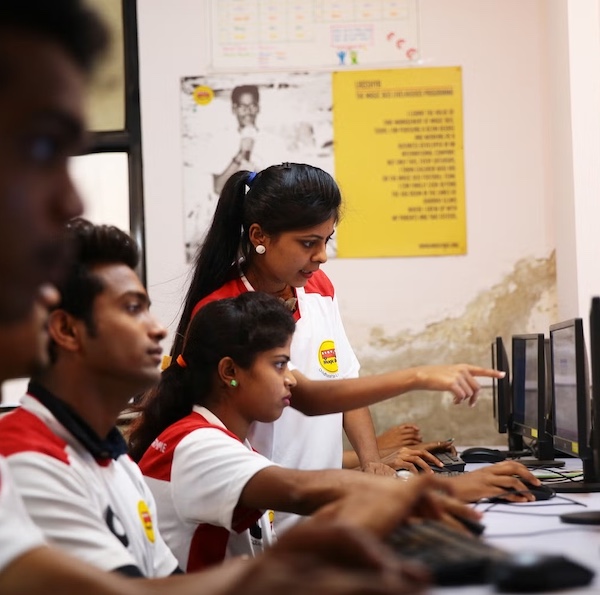
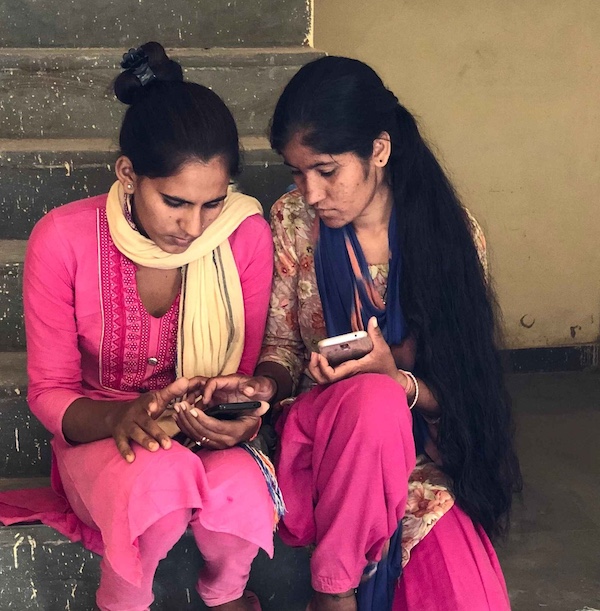
INVEST IN PROCESSES
Capacity development is not just about investing in people.
Investing in processes means going beyond project funding. That means supporting organizations as they build out systems and cycles, iterate and experiment, manage key relationships, and seek out new partners—all while still carrying out their programs on-the-ground.
Help maintain focus
Aisha Raheem, founder and CEO of Farmz2U, says the organization’s funders “ensure that we’re building our business in a systemic way that is addressing current problems as opposed to just focusing on the commercial perspectives, which are important, but not the only point of focus.”
Identify barriers
Rippleworks helped Rocket Learning build out its relationship strategy with investors and funders by encouraging them to track communications with those stakeholders and build more engaged relationships. That process ultimately led to stronger working relationships between Rocket Learning and its backers. Building out internal processes around fundraising, human-resource management, governance, and technology are important if funders want a good return on their investment. Aniket Doegar, co-founder and CEO of Haqdarshak, also wants funders to help anticipate and identify barriers to scaling before they arise. According to Doegar, there are many experts who can advise on the solutions, but understanding what problems will come up and how to frame them can be one of the most valuable types of support.
NOW IS THE TIME
In the wake of government cuts to foreign aid, it’s time for philanthropy to step up.
While it’s too early to know what the future of social-venture support will look like in the wake of cuts to foreign aid, organizations say the spotlight is now on philanthropy to help fill the gap and plot a way forward.
The vital role of foundations
The Luminos Fund’s budget has taken a hit because of government funding cuts. Thankfully, other funding sources keep them upright. “The overwhelming majority of our budget is philanthropic, and it’s never been a better time than now to be funded by foundations,” said Caitlin Baron, CEO.
Ways to help amid uncertainty
Rippleworks provided Sanku a $100,000 emergency grant to fill a funding void left by the fall of USAID. That cash was a lifeline for their operations in Ethiopia. “The immediate impact is that money will go to cover operations to keep momentum going, to allow us to not slow down on installing these machines and getting mills to produce fortified flour,” said Felix Brooks-Church. Jessica Vernon, CEO of Maisha Meds, highlighted the importance of blended funding sources in light of sudden changes in public funding. Getting money upfront and putting it in an escrow account is another way to weather the chaos caused by shifts in government priorities and sudden pauses in funding.
